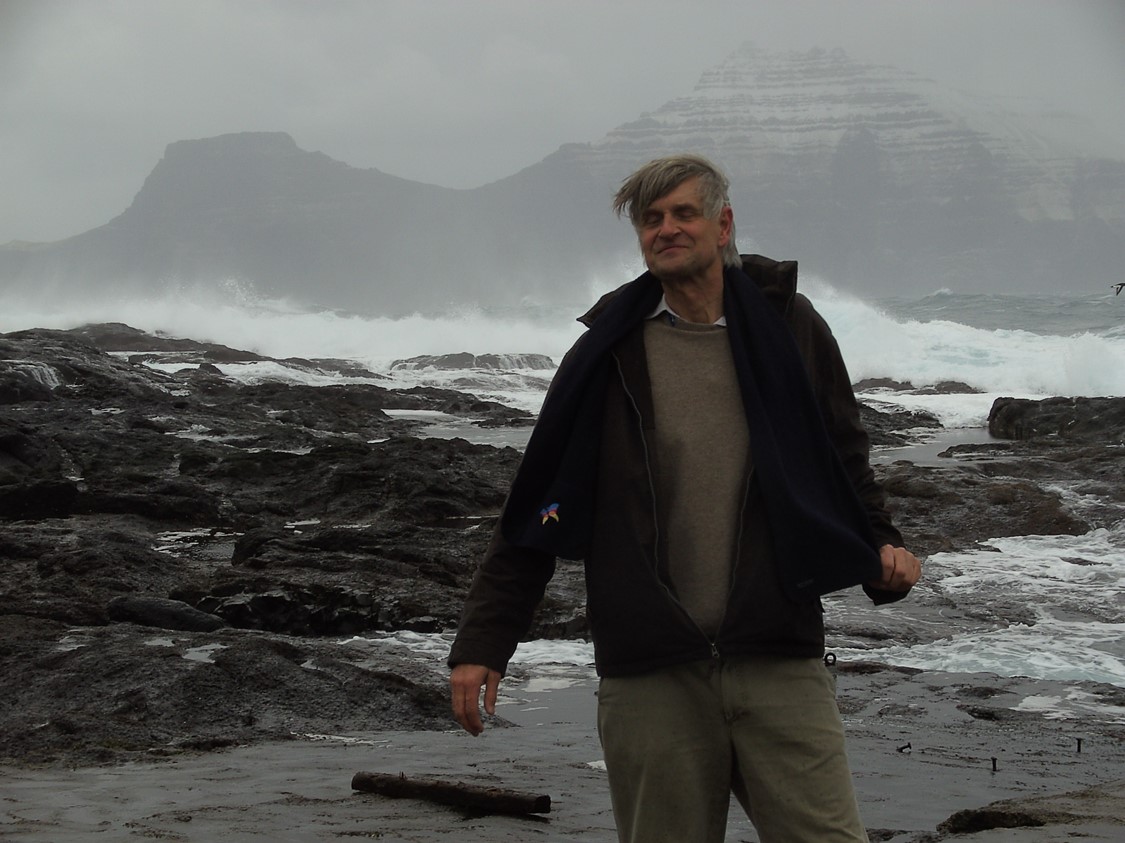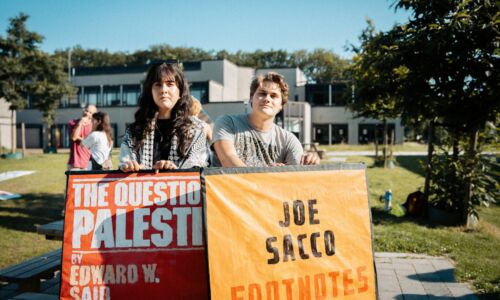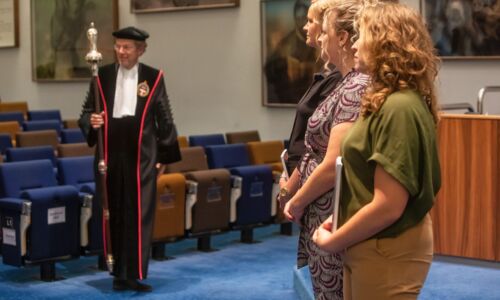Summer interview (2): Preventing serious genetic diseases on the Faroe Islands and in the Netherlands
-
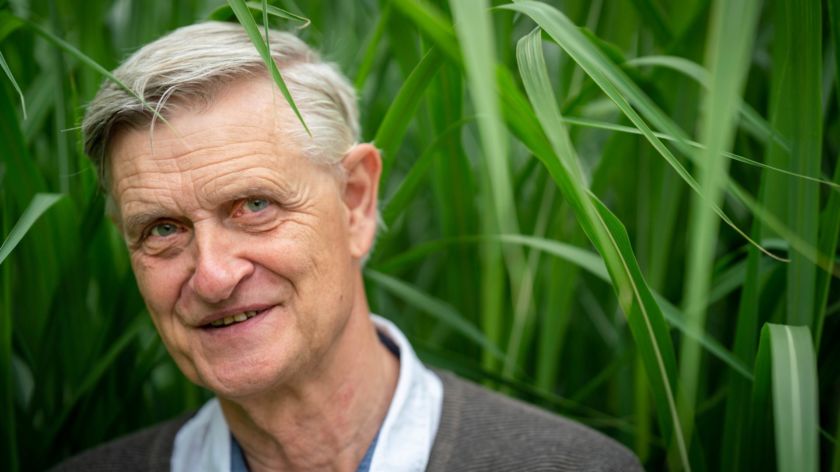 Ron Wevers. Foto: Erik van 't Hullenaar
Ron Wevers. Foto: Erik van 't Hullenaar
Meeting a young boy from the Faroe Islands with a rare genetic disease made Ron Wevers, Professor of Clinical Chemistry, stop and think. Could he set up a system so that no more severely disabled children would be born on the islands? Now that the system is almost ready, Wevers is looking at the Netherlands. ‘Screening can prevent a lot of suffering here as well.’
Is it desirable to carry out large-scale preconception pregnancy screening of Dutch couples for DNA errors? Professor Ron Wevers believes it is. He has a mission: to greatly reduce the number of children born with a handicap via so-called ‘preconception pregnancy screening’. In this system, couples who run the risk of having children with a serious handicap are informed of this by the hospital. That offers them the chance to choose other reproductive alternatives, such as IVF, so that the couples can still have healthy children.
Piling up blocks
Wevers came up with this idea in 1999 at a congress in the German city of Göttingen, where he met a severely disabled boy from the Faroe Islands. In addition to the few hundred academics at the congress, twenty children with a severe disability were also present. After a long medical history at numerous hospitals, the parents of these children still didn’t know what was wrong with their son or daughter. So, as a last resort, they presented their children to a panel of international scientists in hopes of getting a diagnosis. The physicians were not only allowed to examine the patients, but, in a full conference room, were also able to question the parents about the course of the disease.
As a specialist in biochemistry and metabolism, Ron Wevers was invited to talk about a child from the Faroe Islands, an isolated group of islands between Iceland, Norway and Scotland. The professor from Radboud University Medical Center had closely examined the file on this boy, who had a serious neurological illness. Although the child appeared normal at birth, the best he could do a few years later was pile a few blocks on top of one another and indicate that he wanted to eat or urinate via pictograms on a computer.
At the congress, suitably named Der ungeloste Fall, Wevers and his colleagues weren’t able to say much about the exact cause of the boy’s illness. ‘We knew that it had something to do with the mitochondria (the cell’s powerhouse, ed.), but not precisely where things went wrong. With the technology available at that time, it would have taken months or even years of research to find an error in the DNA. Today, only three weeks.’
Piece of cake
In the tea break during the congress, Wevers spoke with the boy’s parents, who told him that they knew at least ten children on the Faroe Islands with the same illness. Since the Faroe Islands had long been an isolated group of islands, Wevers suspected that the afflicted families were related to one another via their family tree and that the illness was caused by an error in the genetic material.
Wevers heard nothing more from the parents for another three years. Then one day the mother rang him to ask if she could see him at his office the next day. The woman walked into Wevers’ office carrying an enormous family tree under her arm, which she and other residents of the Faroe Islands had made during the cold winter evenings. ‘I’d never seen such an impressive family tree,’ said Wevers. ‘It contained all of the Faroe Islands families with a patient with this illness.’

As suspected, all of the cases could be traced back to a genetic error in one shared ancestor who was born in 1630. So Wevers decided that, together with his colleagues in genetics in Nijmegen, he would investigate the cause of this illness and, if possible, develop a therapy for the disabled child.
In 2003 Wevers and his team made their first trip to the Faroe Islands, where they took blood samples from the disabled children and the members of their families. After that it was a piece of cake to analyse which chromosome pieces were the same in all patients and thus create a list of genes that might be involved.
After a year and a half of searching, Wevers found the so-called SUCLA2 gene containing the error that caused the illness in the patients on the Faroe Islands. Perfectly healthy parents who both have an error in this gene have a one-in-four chance of giving birth to a disabled child. Wevers also created a diet for the disabled boy on the Faroe Island but unfortunately that help came too late.
DNA equipment
But the boy didn’t disappear from Wevers’ thoughts. The professor began to consider the idea of setting up a preconception pregnancy screening to prevent children from being born with the SUCLA2 disease.
In 2007 and 2008 Wevers visited the Faroe Islands a few times to talk about his idea with parents and patients as well as with doctors, ethics experts, the media, representatives of the church, insurance companies and other citizens. He gave a well-attended talk in an auditorium. The inhabitants of the Faroe Islands were interested in his ideas, but there were obstacles to overcome. There was insufficient knowledge of genetics on the group of islands and no laboratory with DNA equipment.
Another few years passed. But then, in 2016, everything needed for further steps fell into place. By sheer chance – a disease in salmon, an important economic factor on the Faroe Islands – the islands now had a laboratory with DNA equipment. And a colleague was found who could lead the subsidised project on the islands.
In consultation with doctors and the government, the number of serious genetic diseases common on the Faroe Islands was expanded to seven. Wevers: ‘At the moment, we’re examining how often heredity during pregnancy for all of these diseases occurs among the residents of the Faroe Islands. This research will be completed within a year, and then the government can decide whether or not to initiate preconception pregnancy screening.’
Diseases in Volendam
Why not implement this system in the Netherlands as well, thought Wevers, who had seen hundreds of different genetic diseases in his work? He knew that the pharmaceutical industry has tried to develop medicines for the most common of these diseases, but that costs tons annually and patients have to take these medicines their entire lives. ‘It’s impossible to think of a therapy for all of these diseases because that would bankrupt the Dutch government,’ Wevers said. ‘My dream is that we try to avoid about 1000 genetic diseases by preconception pregnancy screening.’
As Wevers explained, such a system already exists in the Netherlands on a small scale. In municipalities such as Katwijk, Urk and Volendam, traditionally closed communities, there are a limited number of genetic diseases, just like on the Faroe Islands. Someone from Volendam who wants to have a child can do a pregnancy test for four ‘Volendam diseases’ that, similar to the Faroe Islands, result from consanguinity among the residents.
Professor Wevers gave another few examples. ‘Marriages between cousins are discouraged in the Netherlands, but partners who share kinship can do a preconception pregnancy test in Maastricht. A group of doctors in Utrecht are working on preventing hereditary kidney diseases, and GPs in Groningen offer preconception screening for a list of the 70 most commonly occurring severe genetic diseases.’
Is the Faroe Islands model applicable in the Netherlands?
‘No, because for each gene there are many more genetic mutations in the population of the Netherlands. I’m optimistic about the Australian model. A couple there gave birth to a daughter, Mackenzie, with spinal muscular atrophy. She died at a very young age. The parents, both completely healthy, wondered if they could have known about the problem beforehand. They contacted politicians and the press and told them that their daughter’s handicap was caused by a genetic error. The government then made 30 million dollars available for the experimental project called ‘Mackenzie’s mission’. In three provinces 10,000 people are being tested for 1300 genes that can all be associated with a serious disease. My Australian colleagues, whom I speak with now and again, are convinced that preconception screening will be initiated once the project has ended. That would make Australia the first country in the world to implement preconception pregnancy screening on a large scale.’
How does it work exactly?
‘Hospitals collect DNA from people by a cheek swab or a blood sample, for example at birth via a heel prick or when people approach the reproductive age (when people have children, ed). If a couple runs the risk of having a child with a serious disease, the hospital will contact them. They’ll be given five reproductive choices that will enable them to still have a healthy child. For example, in vitro fertilisation, in which the egg cell and the sperm cell come together in a test tube.’
Are future parents required to participate in the screening?
‘No, it has to remain a free choice. But I do think that the government should offer this screening for free.’
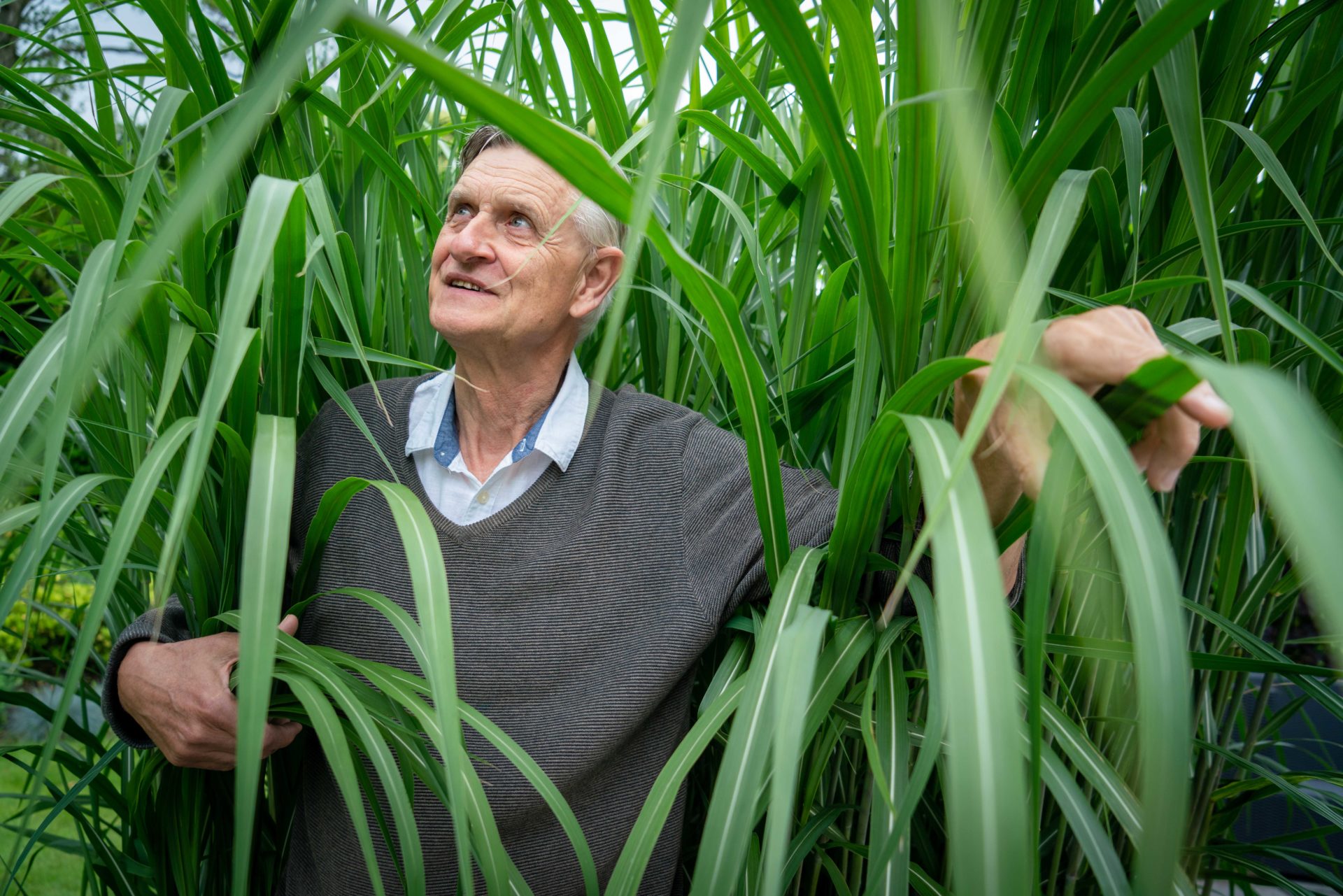
Should we want people to be aware of errors in their genes?
‘I don’t think that’s wise. Everyone has a few errors in their genome. Preconception screening is intended for parents who want to have a child. They won’t get any individual results but will only learn whether both their DNA carries a high risk of a child with a severe handicap. If you tell people about errors in their individual DNA, they often won’t understand sufficiently, and this will quickly diminish support for preconception pregnancy screening.’
If people still have a disabled child, won’t the consequence be that other people will say that it was their own fault?
‘People are quick to point to disabled children. Before this screening is implemented, a lot of information needs to be given. Even if people are very healthy, they can have a seriously disabled child because of an error in their genetic material. And even if, like Australia, we include 1300 untreatable genetic diseases in a form of preconception screening, disabled children will continue to be born because new genetic diseases are discovered every day.’
Are all of the 1300 diseases on the list of severe handicaps?
‘They’re all very serious diseases, most of which begin at a young age. Diseases like hereditary Alzheimer’s or Huntington’s disease, whose symptoms appear at a later age, are not on the list.’
Should a political discussion be held on this topic?
‘Definitely, and that’s already taking place. Minister Hugo de Jonge has commissioned a study of the ethical implications and social consequences of preconception screening. The final report will be ready in the next few months.’
‘But politicians should put this topic on the agenda themselves. Together with Clara van Karnebeek, paediatrician and Professor of Metabolic Diseases, I wrote a letter last year to the programme committee of D66 because that party has consistently given attention to ethical issues in the past few years. The party has now included a few sentences about this screening in the healthcare section of its programme.’
How realistic is it that Dutch couples will be screened in the future?
‘I hope and expect that it will happen. I don’t know if it will happen in my lifetime, but the possibility to prevent an enormous amount of suffering is something we should take advantage of.’
Why are you so convinced of this?
‘1 out of 150 couples in the Netherlands runs the risk of having a child with a disease like this. When you realise that 170,000 to 180,000 children are born here annually, then you can see that, each year, about 280 of these children will have a handicap. That is an inconceivable amount of suffering. In addition, the parents of disabled children often spend enormous amounts of time at doctors’ offices and hospitals before they find a doctor who can determine the cause of the disease. This involves huge healthcare costs apart from the costs of the medication.’
And you could reduce that number to almost zero by prenatal screening?
‘Theoretically, yes, but that’s based on the assumption that all parents participate in the screening. One advantage is that each couple has to do the screening only once since their DNA remains unchanged.’
Excuse me for asking, but to what extent does preconception screening differ from the idea of the socially engineered human?
‘I want to stay far away from ideas like that. Preconception screening isn’t about creating children with a desired eye colour or an IQ of 130 or more. It’s about reproductive choices for parents who run a high risk of having a seriously disabled child.’
What do you say to people who run a risk but still choose to have a child without considering the choices?
‘It’s up to doctors, especially clinical geneticists, to give these people the right information and inform them about the scope of reproductive choices. They need to take all the time they need to do this so people can make a well-informed and well-considered decision.’
You yourself aren’t a doctor. Do you have a different perspective on this problem?
‘I’m a chemist whose job it is to measure difficult materials and study genes. As a result, I’m not in close contact with patients. Because of my adventure on the Faroe Islands, among other things, I feel that I can empathise with parents of children with a severe disability. The despair in their eyes says it all.’
How did that meeting at the congress in Göttingen influence your career?
‘My work is to diagnose hereditary diseases and develop biochemical tests to detect these diseases. In principle, nothing has changed in that respect. But I did realise that medicine can’t come up with a therapy for all genetic diseases. Keep on dreaming, it simply costs too much money. No, in this case prevention is better than healing.’
Health Council of the Netherlands
Clinical chemist Ron Wevers has been retired for three years but can still often be found in Radboud University Medical Center. In addition to his career as a professor and head of the Translational Metabolic Laboratory, Wevers was a member of the Health Council of the Netherlands for years, for example in the Genetics Consultative Group. He is currently still on the Health Council’s committee on screening during pregnancy and birth.

